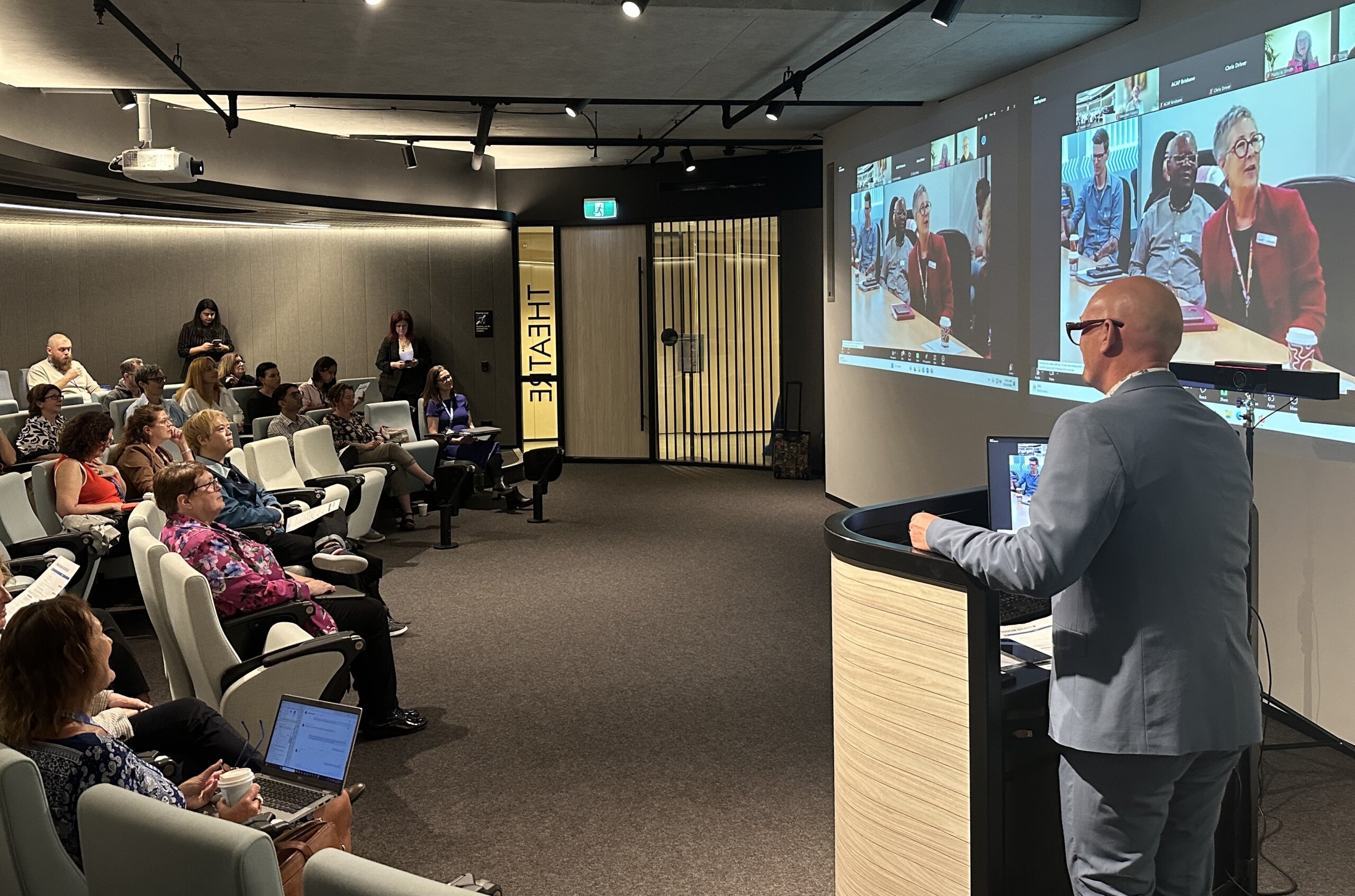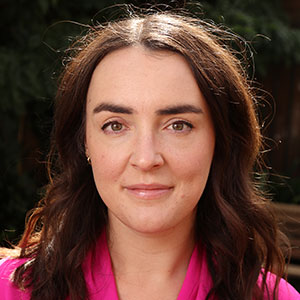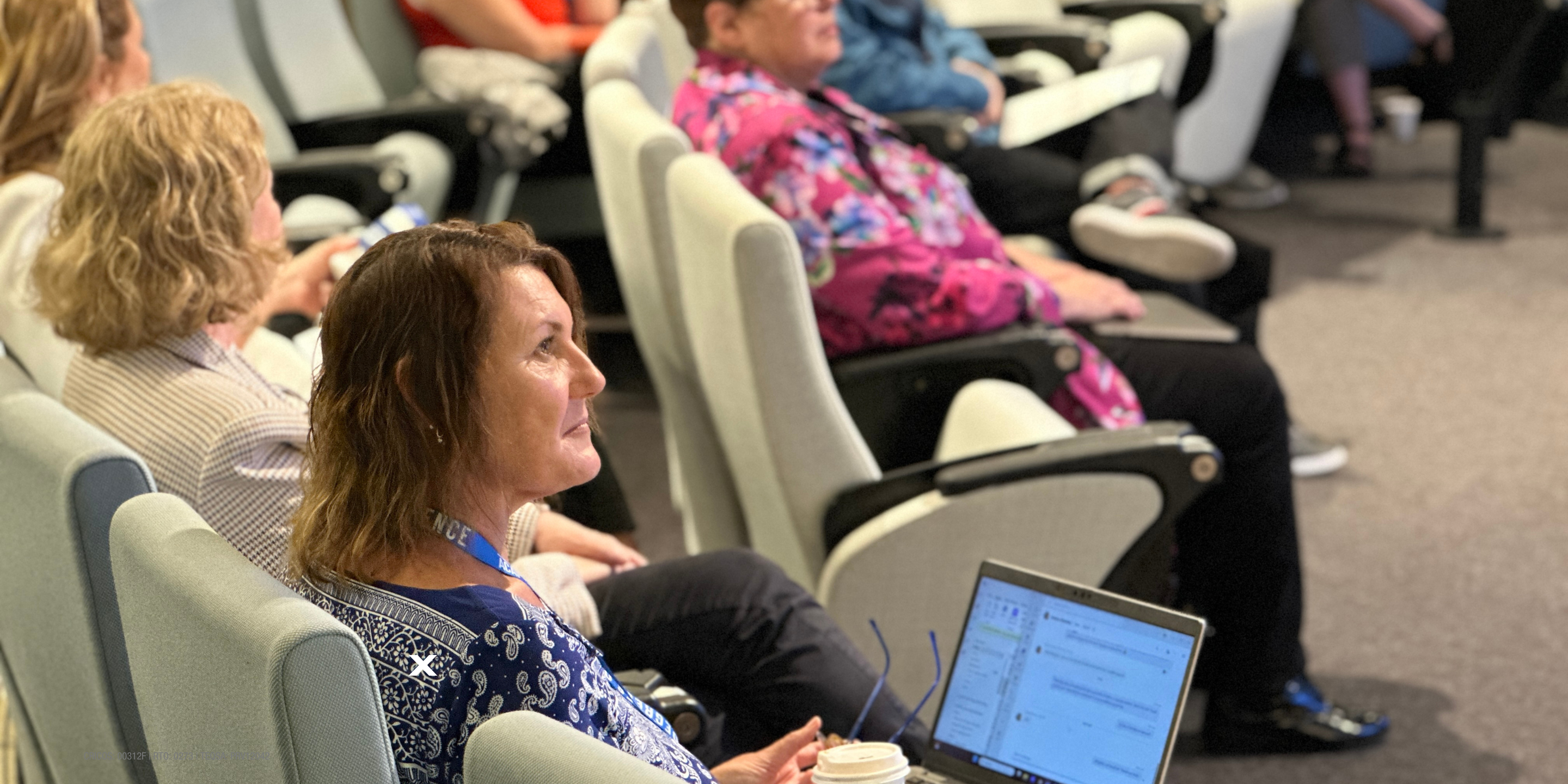Learn more about the ACAP Conference
The 2024 ACAP Conference welcomed more than 100 attendees on Wednesday October 30, for Sustaining Scholarship: Furthering and applying knowledge through student-centred practice.
Dean Professor Christopher Klopper welcomed attendees in Sydney and online from ACAP’s six campuses in an opening address.
“This year’s theme exemplifies ACAP’s commitment to fostering scholarship that directly enhances our students’ learning experiences and prepares them for the evolving demands of their future professions,” he said.
The conference heard from students and teachers who presented research and analysis of key issues affecting the human sciences in 2024.
Associate Dean Gina Saliba co-organised the event, and said it was among the most successful conferences the University College had hosted, building on the successes of previous years, but also raising the bar in terms of content, engagement and discourse.

“This year’s ACAP Conference was truly outstanding and can be considered one of the best we have had,” she said.
“Compared to previous years, the variety and depth of topics presented were exceptional, showcasing a broad range of contemporary issues and innovative practices in both higher education and scholarship.
“The feedback from participants has been overwhelmingly positive, with many highlighting the relevance of the presentations to their own teaching and learning practices or to spark new ways of thinking and doing.”
Professor Klopper announced the winner of the Dean’s Award ahead of the keynote speech as Emma Bellamy-Dodd for her work, ‘There is more to it than applying interventions: A thematic analysis of psychological creativity in the context of psychological therapy’.
Dr Noritta Morseau Diop delivered a powerful Acknowledgement of Country to all attendees before Professor Sue Saltmarsh gave her keynote address, ‘After student-centred learning: Knowledge, practices and the art(s) of harder questions’.
Following the keynote, the conference split into two streams for academic presentations and discussion.
In the first stream, staff members presented sessions on research and projects spanning from a ‘Big Data’ analysis of employment opportunities by Professor John Reece, to ‘Furthering and applying social work knowledge through student-centered work integrated practice’ by ACAP Clinics Director Deb Gavan.

In the second stream, Sally Thomson-Campora raised questions about the impact of online influencers in the health space in her presentation, ‘Wellness culture in the age of self-appointed alt health influencer: What are the implications for counselling education?’.
The role of AI in crimes, criminology and academic learning, was also discussed in the stream by Matthew Thurgood, Dr Rachel Joy, Daphne Choi and Terri Sher in their presentation, ‘Criminology and Artificial Intelligence: Lessons in and for the classroom’.
The afternoon session heard from ACAP academics in the first stream, with highlights including Dr Prince Atorkey’s findings on unique health risk behaviour among University College students in his presentation, ‘Health-risk behaviour co-occurrence and associated mental health and socio-demographics’. In the same session, Associate Professor Fiona Ann Papps presented her survey of over 350 women and female identified persons in ‘The relationship of Mental Corseting to Sexual Well-Being in Adult Women and Female-Identified Persons’.
In the second afternoon stream, students presented research on a variety of topics including Polycystic Ovary Syndrome and wellbeing, the coming out experiences of gender and sexuality diverse people of colour, and research on how gay men of colour navigate disclosure of open relationships.

Gina said the event was an excellent opportunity to share learnings and connect with peers.
“The collaborative atmosphere fostered by networking opportunities during morning tea, lunch and the after-closing ceremony networking also contributed to a sense of community among participants, making the event more than just a series of presentations but a valuable networking and learning experience,” she said.
“Days like these are a great opportunity to support and learn from colleagues across disciplines, lending themselves to transdisciplinary experiences and scholarship.”

